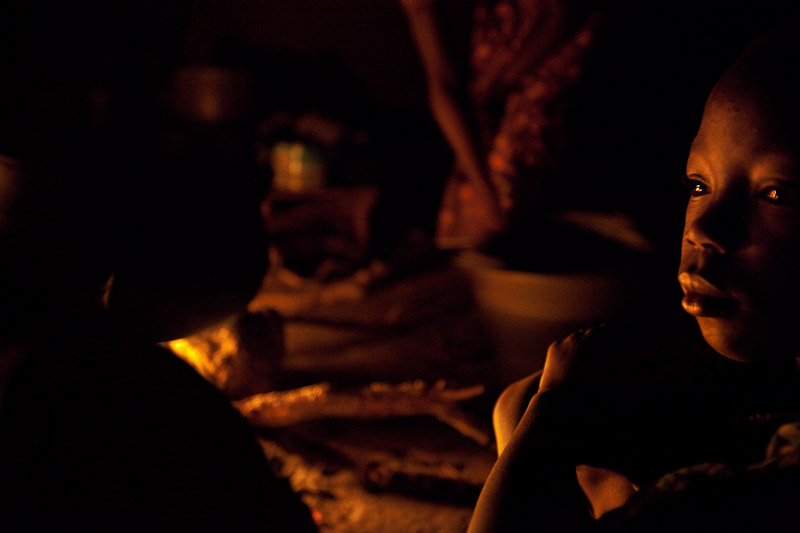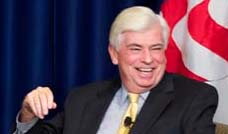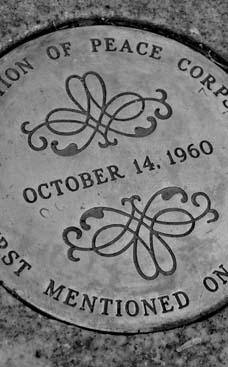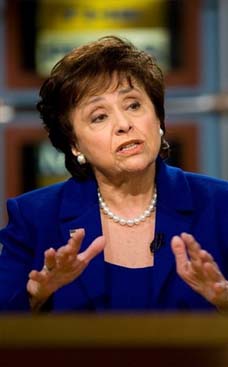
"I began this story while living and working as a Peace Corps volunteer in a village called Wantugu in Ghana's rural north. I was out wandering one evening and noticed the children reading the Koran by flashlight in the village's central mosque. I was attracted by the beauty of the situation-the hypnotic recital of the passages and the earnest way they studied by flashlight-so I made a few pictures and recorded some audio on an iPod. That became the beginning of the project. I realized that I could illustrate the village's lack of electricity this way and kept shooting. I did a very basic version of the story and it ran in the Christian Science Monitor, because a friend of mine worked there. I felt like it was done, but over the next couple of years, photographer and editor friends encouraged me to continue the story and to think of other aspects that I could photograph. Finally I had the chance-first briefly in 2009 and then for a couple of weeks in 2010. This is the project that I grew with as a photographer and a journalist-the project that taught me, and is still teaching me, just how far you can take an idea or an issue. "
RPCV Peter DiCampo captures village life in Ghana without benefit of electricity
Peter DiCampo: Illuminating Darkness
Alum captures African village life without benefit of electricity
By Tom Vellner (COM'13)
Caption: A child sits at a household cooking fire in the early morning in Gushie, Ghana. Although Gushie sits on the main road through northern Ghana, powerlines from both directions stop just before reaching the small village.
Any professional photographer would envy the year Peter DiCampo has had. Earlier this fall, the 26-year-old received an International Photography Award from the British Journal of Photography. He was honored in the Body of Work category for his project Life Without Lights, which documents the challenges faced by African villagers in northern Ghana who have no electricity and must find ways to study, cook, and work at night.
That award netted DiCampo (COM'05) a solo exhibition at London's AOP Gallery last month and a new Nikon camera and lens. His depiction of nighttime life in Ghana was selected from among nearly 150 submissions.
Because of its proximity to the equator, Ghana has 12 hours of daylight and 12 hours of darkness each day. But the country's rural north has little or no access to electricity, plunging those who live there into darkness after 6 p.m. With only torches, flashlights, and other portable lights, the Ghanaians struggle to work and carry out everyday chores. DiCampo's photographs indelibly capture the challenges of living off the grid.
Using only natural light to shoot his subjects, DiCampo impressed the competition's judges with images they found both "magical" and "hard-hitting."
BU Today recently talked with DiCampo about his Life Without Lights project.
BU Today: What inspired Life Without Lights?
DiCampo: I began this story while living and working as a Peace Corps volunteer in a village called Wantugu in Ghana's rural north. I was out wandering one evening and noticed the children reading the Koran by flashlight in the village's central mosque. I was attracted by the beauty of the situation-the hypnotic recital of the passages and the earnest way they studied by flashlight-so I made a few pictures and recorded some audio on an iPod. That became the beginning of the project.
I realized that I could illustrate the village's lack of electricity this way and kept shooting. I did a very basic version of the story and it ran in the Christian Science Monitor, because a friend of mine worked there. I felt like it was done, but over the next couple of years, photographer and editor friends encouraged me to continue the story and to think of other aspects that I could photograph. Finally I had the chance-first briefly in 2009 and then for a couple of weeks in 2010. This is the project that I grew with as a photographer and a journalist-the project that taught me, and is still teaching me, just how far you can take an idea or an issue.
What techniques did you use to deal with the lack of light?
Basically, I was careful. Very careful. And I put a lot of time into each situation. I would frame up a shot and photograph the same thing over and over again, just hoping that things would line up right and the image would have clarity and meaning. The digital gear is equipped to shoot in low light, but sometimes I was pushing it too far-shooting in light that was so close to nonexistent that the shots were useless.
The most difficult part was focusing. The light is too low for auto focus, and it's difficult to manually focus and trust your eye when it's that dark. A couple of times I put a flash on my camera, the kind that emits a red light to focus, but I didn't like to use it because in near-darkness, the subjects suddenly would have a bright red light in their eye and would start paying too much attention to me.
All of the photos you're seeing are done with natural light. I didn't change any of the light sources in the documentary images.
How would you describe your interaction with the Ghanaians you photographed?
There's no way to describe it except for great. Of course I did the bulk of this project after already living in the area for two years. The people in my village came to accept me as one of their own. It's still my second home, and I return whenever I'm able. Once I expanded the project to other villages, it was still easy because the people are so friendly and because I spoke the language in a conversational way. But I always explained to people what I was trying to do, and it's an issue they get fired up about, so they were happy to participate.
How did your Peace Corps experience influence your photography in Ghana?
My photography wouldn't be where it is now if I had not done Peace Corps, simply because I wouldn't have the same understanding of the issues. A project like this is probably not something I would have conceived after a short time in Africa-I was nearly a year in the country, and in that village, before I started making photographs in the dark. It took that long to understand the implications that electricity has for people. I like to think that this project is my first real step in moving beyond more generic images of Africa.
What do you hope people learn from your photos?
I hope that people see these photographs and realize that living without electricity is not simply about the lack of light-there is also an enormous economic impact. It's not always so simple to visualize, but I hope it comes across. For example, the fact that teachers prefer not to be stationed in a place without electricity, and so education in the area suffers. You have to find a way to photograph that concept.
I also think that I was able to present a problem, but not victimize the people I was photographing. I didn't make it an "Oh, poor Africa" stereotype of a story, but I still made it clear that there's a problem that needs to be solved.
How was your London exhibition received?
It was very well received. I got a lot of great compliments from photo editors and students. I'm very inspired to continue photographing electricity issues.
What are you currently working on?
While I'm taking the occasional assignment and have a couple of small side stories, I'm really trying to dig into the issue of electricity more for the next year or two. I've done a story on the topic in Iraqi Kurdistan and have begun two in the States that I'm now returning to. I have an enormous list of possibilities for this, and really need to narrow down my focus, start applying for grants, and get to work.
What are the most valuable lessons you learned at BU?
The journalistic fundamentals-I know how to research, pursue, and understand a story, how to articulate it in photos and in writing, and how to get a good picture without setting it up. I cannot stress enough how far these seemingly basic things have gotten me. I can usually see the difference between a photographer or journalist who has been to school for journalism versus one who just picks it up along the way.













